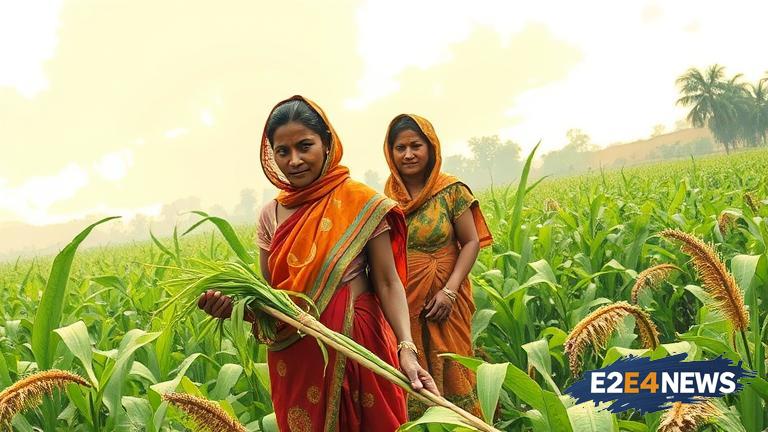Women in agriculture are the backbone of many rural communities, responsible for producing, processing, and marketing food. They contribute significantly to food security, poverty reduction, and sustainable development. However, women in agriculture face numerous challenges, including limited access to land, credit, and technology. They also bear a disproportionate burden of household and childcare responsibilities, leaving them with limited time and energy to focus on their agricultural activities. Despite these challenges, women in agriculture are resilient and resourceful, using innovative techniques and strategies to improve their yields and incomes. In many countries, women’s participation in agriculture is increasing, driven by factors such as urbanization, migration, and climate change. Women are also playing a key role in promoting sustainable agriculture practices, such as organic farming and agroforestry. By empowering women in agriculture, we can unlock their potential and contribute to global growth and development. Women’s empowerment in agriculture can be achieved through a range of strategies, including providing access to training, credit, and technology. It also requires addressing the social and cultural barriers that prevent women from fully participating in agricultural activities. Governments, NGOs, and private sector organizations are working together to support women in agriculture, through initiatives such as women’s farmer groups, agricultural training programs, and microfinance schemes. These initiatives are helping to improve women’s access to resources, increase their productivity, and enhance their livelihoods. Women in agriculture are also contributing to the achievement of the Sustainable Development Goals (SDGs), particularly SDG 2 (Zero Hunger), SDG 5 (Gender Equality), and SDG 13 (Climate Action). By supporting women in agriculture, we can help to reduce poverty, improve food security, and promote sustainable development. Furthermore, women’s participation in agriculture can also contribute to the preservation of traditional knowledge and practices, as well as the promotion of biodiversity and ecosystem services. In addition, women in agriculture are playing a key role in promoting nutrition and health, through the production and consumption of nutritious foods. They are also contributing to the development of local economies, through the sale of agricultural products and the creation of employment opportunities. Overall, empowering women in agriculture is essential for achieving global growth and development, and for promoting sustainable and equitable food systems. It requires a comprehensive approach that addresses the social, economic, and cultural barriers that prevent women from fully participating in agricultural activities. By working together, we can unlock the potential of women in agriculture and contribute to a more food-secure, equitable, and sustainable world. Women in agriculture are not just farmers, they are also entrepreneurs, innovators, and leaders, and their contributions to global growth and development should be recognized and valued. The future of agriculture depends on the empowerment of women, and it is essential that we prioritize their needs and interests in our efforts to promote sustainable and equitable food systems. In conclusion, women in agriculture are critical to achieving global growth and development, and their empowerment is essential for promoting sustainable and equitable food systems. By supporting women in agriculture, we can help to reduce poverty, improve food security, and promote sustainable development, and contribute to a more food-secure, equitable, and sustainable world.
